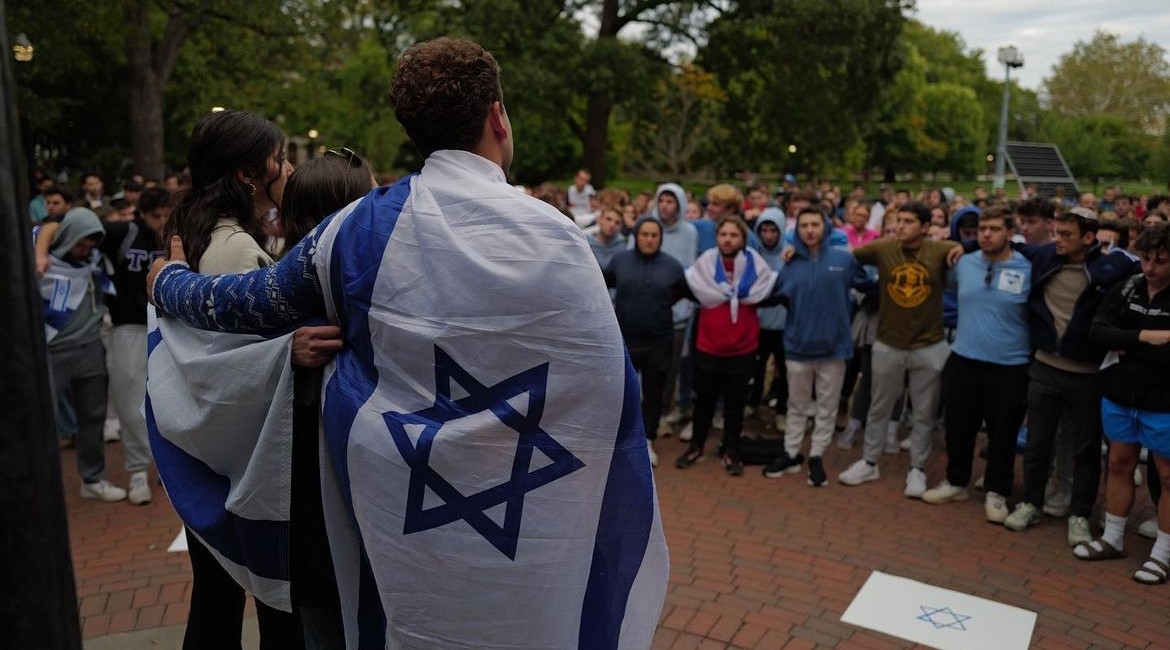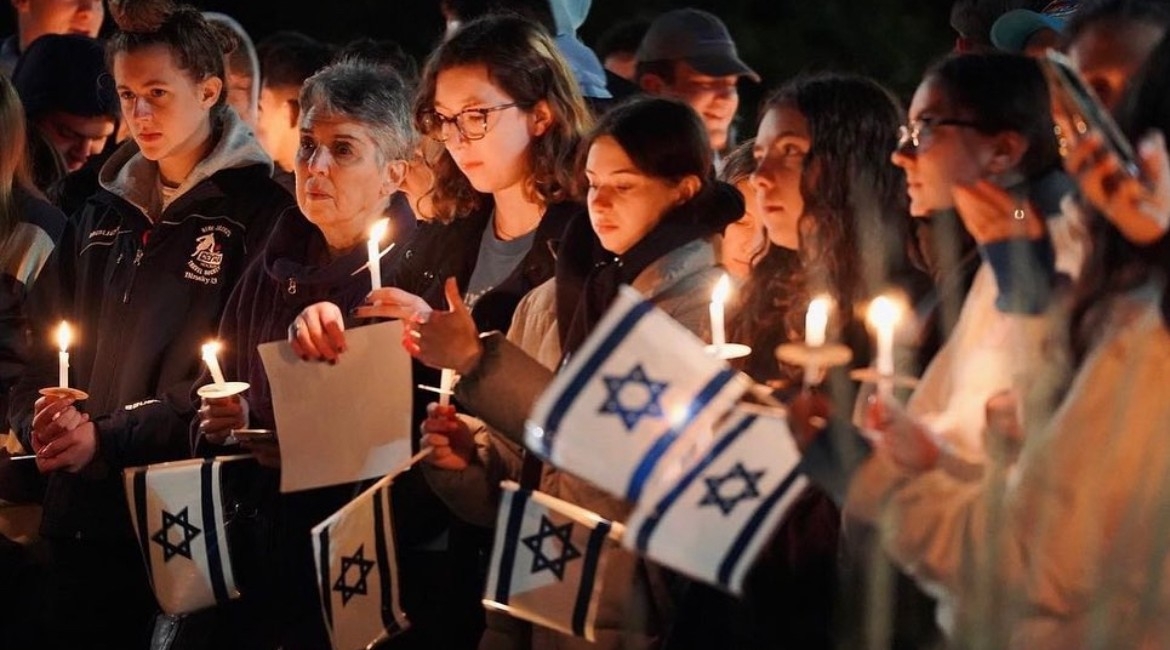Imagine being a Jewish college student on campus today. You wake up on Saturday, October 7, and learn of the most violent and murderous attack against the Jewish people since the Holocaust. In those first few hours during which the extent of Hamas’s atrocities are still becoming known, you log on to social media and see fellow students posting a laudatory graphic of a Hamas terrorist on a paraglider — the same paragliders that were used in an attack to gun down Jews your age at a music festival.
In the days that follow, you leave your dorm to attend a vigil for the 1,400 Jews who were slaughtered, but your mourning and grief are interrupted by pro-Hamas protestors. You arrive at class for a required course where the professor asks all the Jewish students to remove their backpacks and belongings and huddle together in a corner so they can feel what it’s like to be a Palestinian in Gaza. You see that a Hamas leader has called for “a global day of jihad” against Jews around the world. And this is all within 72 hours of seeing graphic images of thousands of Israeli civilians – people to whom you feel connected or may even know – being slaughtered, raped, taken hostage or maimed.
And through all of this, you hear silence from many you would expect to speak up and express outrage at what is happening, including faculty who lead your classes and administrators who lead your institutions.
These are just a few of the very real and horrifying examples of what has been happening on campuses nationwide. And when you hear it, it’s easy to understand why Jewish students are scared. In fact, based on our survey of Jewish college students last week, more than half (56%) report being scared, isolated, angry and sad.
Worse yet, a quarter of Jewish students surveyed said there has been violence or acts of hate committed on their campus since the Oct. 7 Hamas attack. That’s one in four students subjected to violence on campus in the span of three weeks in what should be a safe space. That should be alarming to everyone. We can’t allow it to go unnoticed or unaddressed.
College and university leaders need to do more. Even with the efforts of those administrations that have spoken up about the initial Hamas atrocities and the subsequent spike in antisemitism, only 41% of the Jewish students we surveyed reported feeling satisfied with support from their university leaders.
Hillels around the world are doing all they can to provide additional security, community space, programming, wellness support and advocacy on behalf of Jewish students. However, Hillel professionals and student leaders can’t solve this problem alone. They need — and Jewish students deserve — campus administrators to continue speaking up, showing up, and standing up for their Jewish student communities, which does not in any way preclude them from doing the same for Palestinian-Americans or other students being impacted by the war.

Students from Ohio State University Hillel gather to express support and solidarity with Israel following the Oct. 7, 2023, attack by Hamas on Israel. (Courtesy of Hillel International)
In particular, university administrations must address faculty and staff who use their platforms and resources to traffic in biased and discriminatory agitation that alienates, silences and marginalizes significant minority communities on their campuses. I understand the needs and protections for academic freedom and free speech, but those freedoms are not a license to create an environment of harassment, bullying and threats for Jewish students, or for any students.
Even amid this degrading campus climate for Jewish students, there is a basis for hope. We’ve seen Jewish students and Hillel communities show up with courage and resilience in mourning for the victims of the Simchat Torah massacre, and in showing compassion toward the continuing civilian victims of the war — both Israeli and Palestinian — even as they understand that it is Hamas who has put all of those victims in harm’s way.
Jewish learning and tradition teaches us to bring light even, and especially, into these darkest moments, and our students exemplify that tradition. While students have a role to play in repairing what’s broken in their campus communities and in the broader world, that does not absolve the university administrators, faculty and staff from doing everything within their powers to ensure the well-being, safety and support for all of their students, including their Jewish students.
Adam Lehman is the President and CEO of Hillel International, the largest Jewish campus organization in the world.
JTA has documented Jewish history in real-time for over a century. Keep our journalism strong by joining us in supporting independent, award-winning reporting.
This article was sponsored by and produced in partnership with Hillel International, the world's largest Jewish campus organization. At 100 years, Hillel continues to uplift Jewish students and offer them safe, supportive communities on over 850 campuses globally. This story was produced by JTA's native content team.
More from Hillel International






